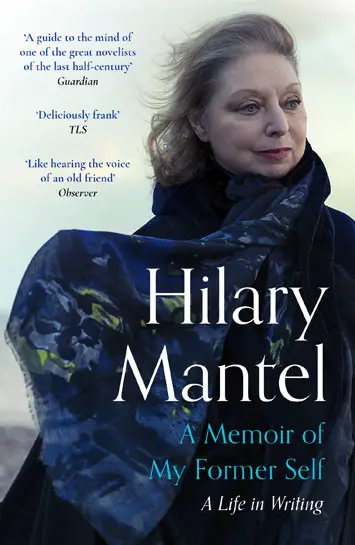Hilary Mantel: A Memoir of my Former Self – Review

By Barney Bardsley
When novelist Hilary Mantel died in 2022, there was a real and palpable sense of loss – not just among the literary set, but in society at large. She was, at 70 years old – and after a lifetime of writing to scant acclaim, outside a loyal but relatively modest readership – utterly in her prime. Her Wolf Hall Tudor trilogy had won her two Booker prizes, and had been adapted, to thrilling effect, on both stage and television screen.
She was erudite, incisive, and, despite her historical specialism, not afraid to speak her mind on matters of the day. It was, and still is, a shock that she is no longer with us, interpreting the social mores and madnesses of our world with her customary aplomb.
In this posthumous book, which is a wide-ranging collection of her non-fiction writings for various newspapers and magazines, spanning several decades, one gets a real sense, not just of her serious approach to writing – her craft and mission – but also a delightful feeling for the woman herself.
There are sections on her early life; her book and film reviews; and, latterly, essays and talks on her obsession with history, and in particular, the Tudors. Mantel writes most eloquently when she examines her personal and working life. The reviews of other people’s art are less compelling. It is as if she has far too much to say from deep inside her soul, to be distracted by the efforts of others. And indeed, it is Mantel herself who mesmerises.
Some of the most affecting pieces in the book concern her early life. In ‘Every Part of my Body Hurts’, she describes her life long battle with endometriosis, a shockingly painful female complaint, the consequences of which led to devastating surgery for Mantel at just 27, to remove ovaries, womb and parts of her bladder and bowel. Despite this radical intervention, she was still condemned to a lifetime of discomfort and pain. In an act of profound generosity, she used the “profound derangement of my body” as a clarion call, on behalf of all women who suffer silently, ignored or belittled by the medical profession. Throughout her life she was a staunch comrade to her own sex.
 “Lacerating”
“Lacerating”
The enforced incapacitation from such a young age entirely changed the course of her life. Unable to be active in the body, she turned to the life of the mind with ferocious intent: her own personal grief becoming the gift – via her writing – to the English reading world.
As a result of her husband’s work, Hilary Mantel spent long periods living in Saudi Arabia, and the essays about this time of her life are perhaps the most stringent and critical in the book. She describes, with pitiless clarity, the country’s arid terrain and stifling social mores (particularly for women). It is clear that she loathes the place and all it stands for, and she cannot wait to leave. In the final paragraph of ‘Last Morning in Al Hamra’, she stands at her window, and has us gaze with her at the city below, with its “dust haze, its grid plan scarred by construction sites, derricks and cranes spiking the sky. To the left was a strip of grey, the coast road, where miles of street lamps arched like the bare ribs of some giant animal whose time has come.”
When she turns her attention to royalty – both past and present – Mantel is lacerating in her critique. She hates the way that women in particular are abused by the aristocracy, describing, in ‘Fashion Queen’, the “atmosphere of vigilant malice” that the hapless Marie Antoinette was forced to endure in the pre-revolutionary French court. But she doesn’t let the woman off the hook either, analysing the eponymous queen’s absurd obsession with clothes with appalled fascination. And when she turns her attention to Princess Diana in the ‘The Princess Myth’, she doesn’t let a natural affection for the young woman blind her to her narcissism. “Even in childhood photos,” she observes, “Diana seems to pose, as if watching her own show.”
In the end, the really absorbing parts of the book are Mantel’s descriptions of her own working process, particularly when embarking on her epic historical novels. Her meticulous attention to detail, thorough research, and utter dedication to the underlying truth of the matter, are what makes her writing so compelling. But more than this: she brings a sense of immediacy – a jolting physicality – to the work. We want to avert our eyes from the often brutal scenes she describes, but we cannot.
As she says in a Reith lecture in 2017, “The task of historical fiction is to take the past out of the archive and relocate it in a body.” What she gives us in her writing is, as she decribes it herself, “a sense of history listening and talking to itself.” She was, and will remain, a remarkable talent. Irreplaceable.
‘Hilary Mantel: A Memoir of my Former Self’ is published by John Murray









